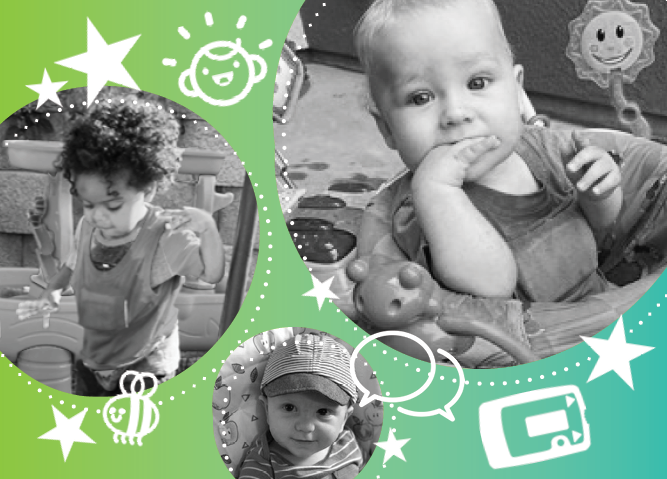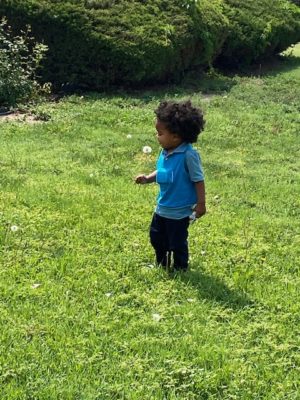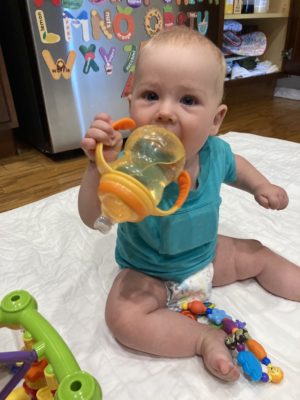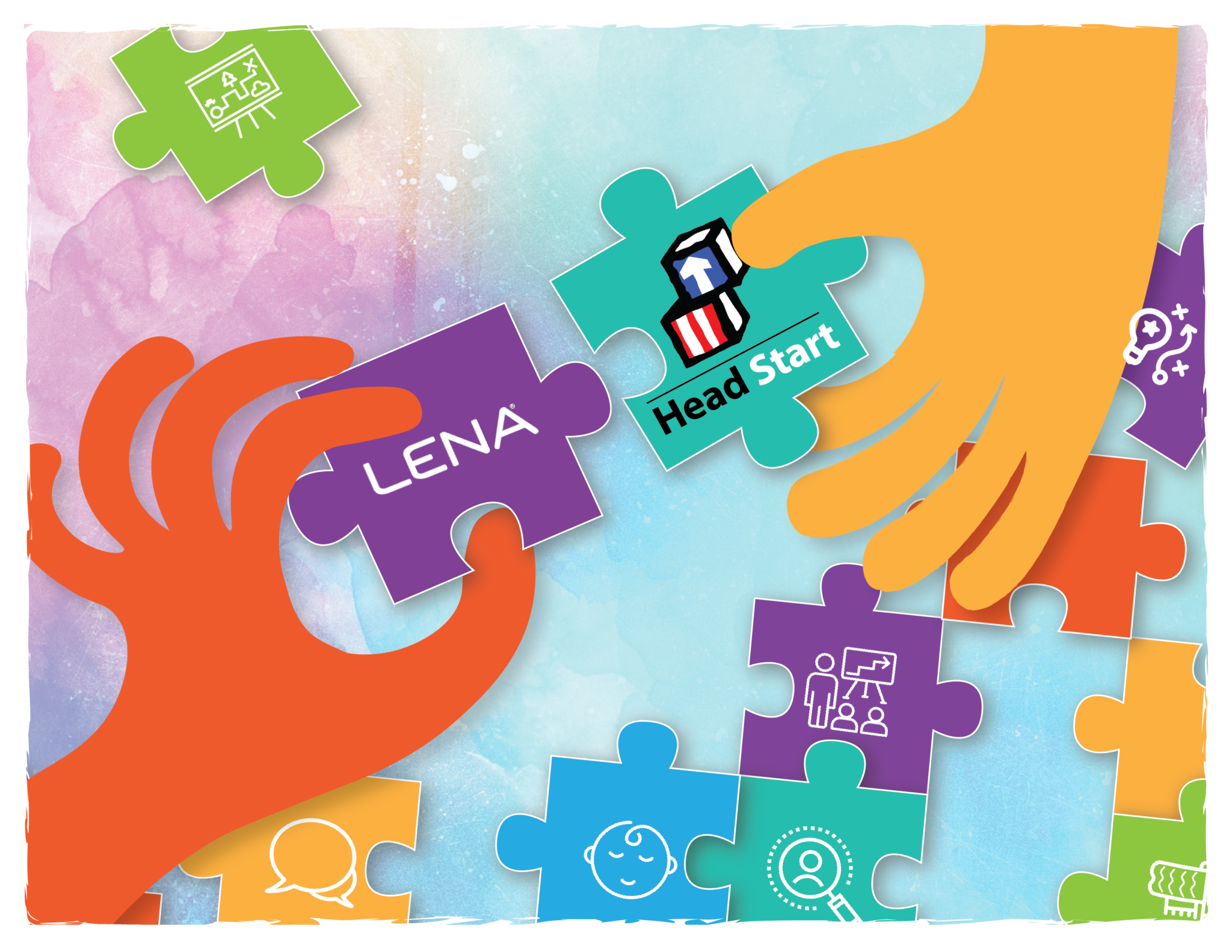In June of 2020, we announced an updated version of LENA Start, our group program for families dedicated to increasing conversational turns between parents and their young children. The benefits to increasing conversational turns, from brain growth to socioemotional development, are well-documented in peer-reviewed research studies.
Among a number of improvements to LENA Start was a particularly big one: virtual session delivery. Alongside our community partners, we set out to maintain the camaraderie of in-person sessions while providing the convenience and safety of virtual sessions.
By early 2021, we had collected enough data to get a comprehensive idea of how well things were going. Quantitatively, families who participated virtually in LENA Start accomplished similar gains in conversational turn counts and adult word counts as those who had participated in pre-pandemic, in-person groups. And qualitatively, families reported overwhelmingly positive experiences.
Virtual LENA Start one year later
Back in June of 2020, we knew some of our program partners would continue to offer at least some LENA Start sessions virtually well into the future. What we didn’t know was that COVID-19 would still be forcing them to do so, even one year later.
So in the summer of 2021, we were interested to see how families’ satisfaction with the program would compare.
It turns out that the response rate to the survey doubled between the fall of 2020 and the spring of 2021, and that satisfaction with the program held steady. That means more than 90% of respondents thought all parents should participate in LENA Start and just shy of 90% said it was easy to participate by phone or online.
Beyond the numbers, though, it’s always the personal stories that paint the clearest picture. We talked with a few families who participated virtually in LENA Start through the Pikes Peak Library District in Colorado Springs, Colo.
"You think you talk to your kids a lot, but to see the data, you think, ‘Oh wow, we could really do some more talking.’ I don’t want to fall asleep behind the wheel. I don’t want to sit back and think it’s the school’s responsibility. I thought, ‘What a valuable resource that I can take advantage of.’”
-Yolanda Fennick
LENA Start family stories
A “modern family” finds a modern program
Yolanda Fennick has what she calls a “modern family.” She lives with her husband, Reggie, their 2-and-a-half-year-old son, Asher, and Reggie’s mother, Eloise. Also in their lives are Reggie’s grown children and two young grandchildren. Yolanda is a family lawyer, and Reggie, retired from the Air Force, works as a risk manager for a nonprofit organization. Asher spends his weekdays at an early learning center. Yolanda signed the family up for LENA Start after seeing the library’s Facebook announcement.
“I just trust the library,” she said. “I grew up with a library card as a small child, and my mom did library work early in her life. I was taught that if you don’t know something, you can go to the library and there are people there who can help you find it. When the library said, ‘Hey, we have a program that’s helpful for children, even infants to 33 months of age,’ I said, ‘Oh wow!’”
The family did have to overcome a few challenges — Asher wasn’t the biggest fan of the LENA vest on his first LENA Day, and there was an unfortunate “device disaster” involving the washing machine — but Yolanda says the experience was both educational and positive, and that it was “ultra-convenient for it to be on Zoom.”
“I did not realize how much language influenced their brain development,” she said. “You think you talk to your kids a lot, but to see the data, you think, ‘Oh wow, we could really do some more talking.’ I don’t want to fall asleep behind the wheel. I don’t want to sit back and think it’s the school’s responsibility. I thought, ‘What a valuable resource that I can take advantage of.’”
Facing an increased risk for language delays
Laura Hegstrom says she surprised herself with the highs and lows she’d feel when she saw her LENA reports. With her husband, Adam, she has two children: Ida is 2 and a half, and Anders, who wore the LENA device during their LENA Start program, is 7 months. Laura is a stay-at-home mom, and Adam works for the local utility company. They heard about the program through Anders’s physical therapist. Anders wears an orthotic helmet and is at an increased risk for language delays.
“I’m not really a competitive person, but if I felt like it was a good report, I would feel so excited and more motivated,” Laura said. “And when I felt like the reports weren’t very good, I felt discouraged. But those feelings also motivated me for the next LENA Day.”
When it came to completing those LENA Days, she decided to mix things up as the weeks went by. Sometimes, it was just her and the kids. Other times, it was on a Saturday and Sunday, when Adam was home all day. And still other times, she spent the day with her kids and her extended family together.
She enjoyed getting into the nitty-gritty of looking for differences in the data, but she also appreciated the simple Talking Tips and Conversation Starters.
“I really loved having the different topics in the classes, like singing and counting,” she said. “Nothing was mind-blowing, but it was really helpful to have little reminders throughout the program that I could very practically implement — with both my kids.”
And as the mother of two young children, she appreciated the convenience of the virtual classes.
“I am probably much more likely to have done it because it was virtual,” she said. “It made it a lot more accessible. It wasn’t always easy to connect with other moms in a personal way, but it was great to hear about their experiences.”
From skepticism to enthusiasm
Ashley Pfalz admits that she was skeptical at first. “You’re thinking in the back of your head, ‘Oh, he’s a baby. He can’t have a conversation with me.’ And how can the device really delineate between him and all the noise my other children make in the background?”
The skepticism gave way to enthusiasm quickly.
“You get the first report,” she said, “and you see that it really can pick these things out and it can pick out the electronics in the background. It made me much more conscious of the noises he was making and responding to those noises.”
Ashley and her husband, Sean, have three children: River is 9, Max is 6, and Eben is 6 months.
Not only was Eben born in the middle of the pandemic, he was also born with a congenital heart condition requiring open-heart surgery when he was a week old. He’s doing great now, Ashley says, and was a very cooperative LENA Start participant.
“I just think it’s a really great program,” Ashley said. “It was nice to have that feeling that you’re in the same boat, and everyone else is figuring out how to navigate talking to their baby, too. It was really eye-opening.”









